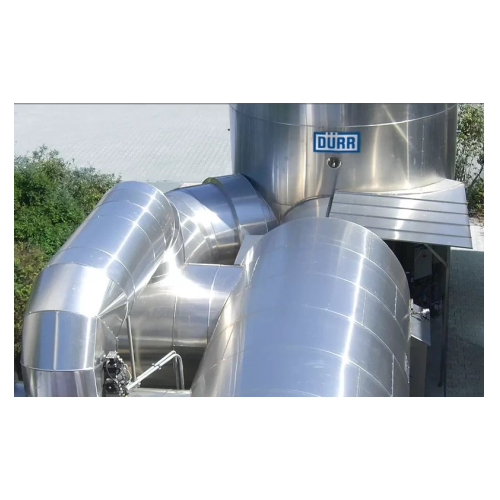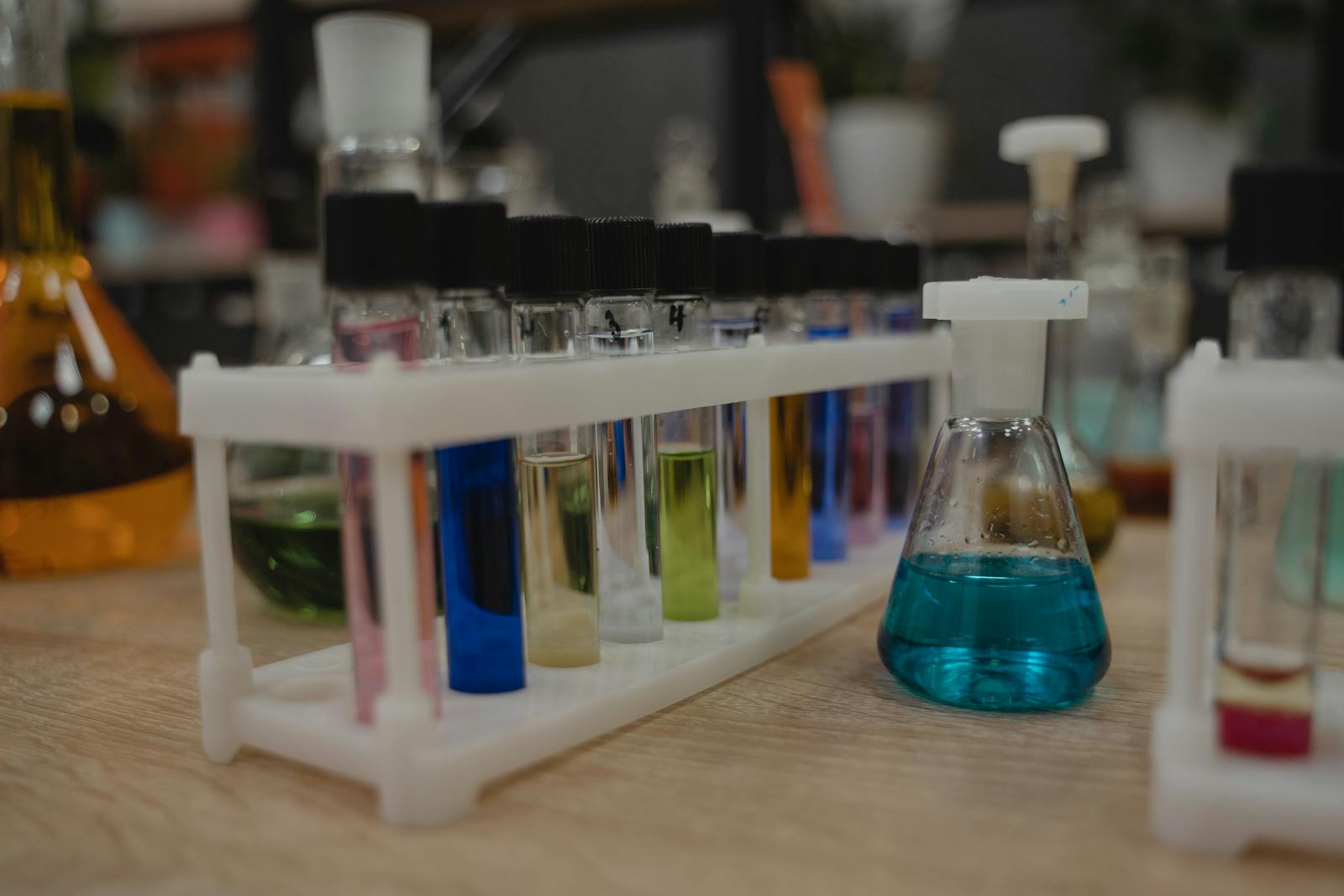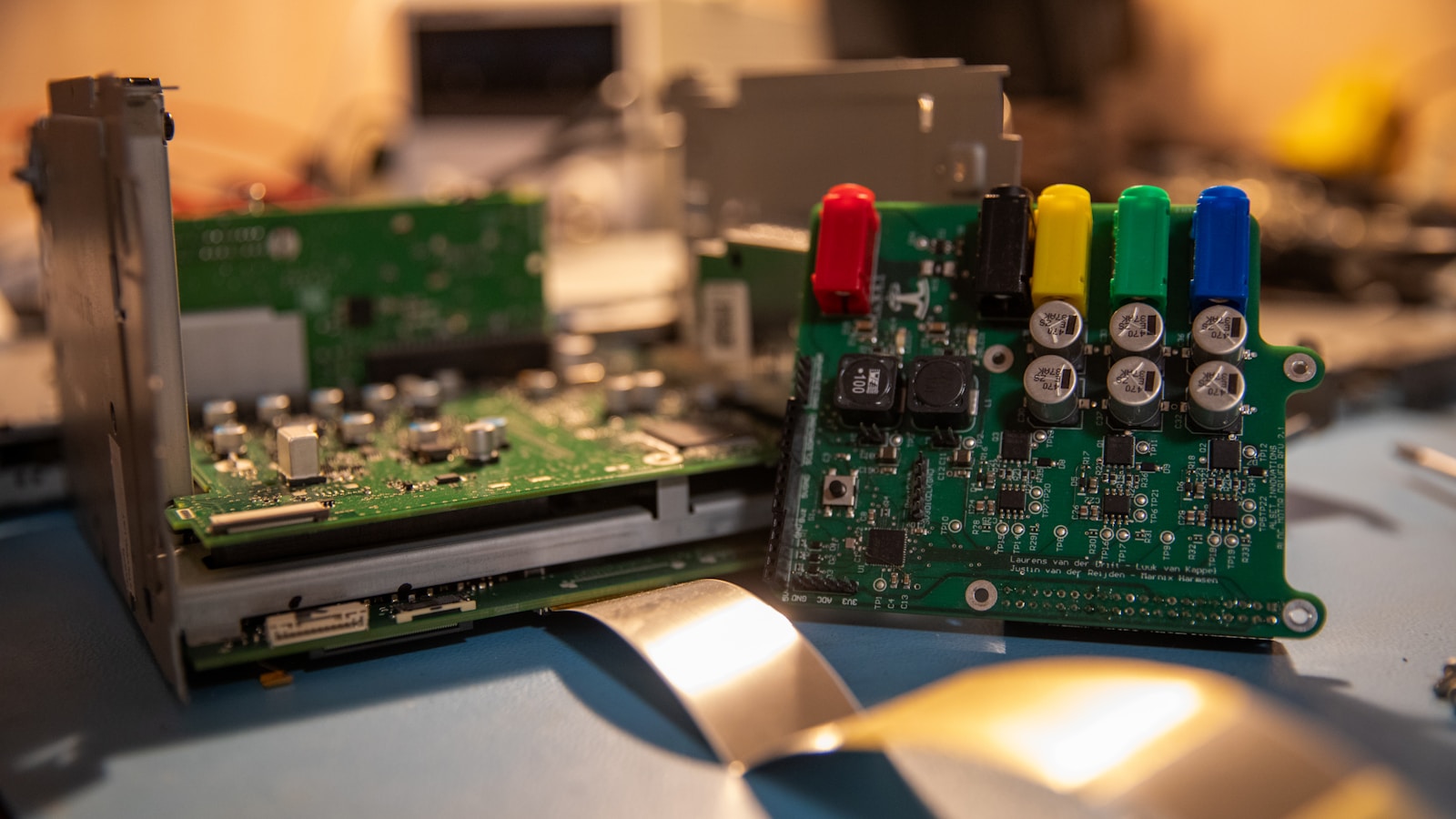Low-pressure catalytic system for Voc removal
Efficiently remove volatile organic compounds while reducing energy consumption with advanced catalytic oxidation, ensuring air purity and compliance in your production process.

Purifies Exhaust Air Through Catalytic Oxidation
The Low-Pressure Catalytic Oxidation System from Dürr is engineered to support VOC removal across varied industrial applications, including chemical and pharmaceutical production, as well as in coating and surface treatment. At its core, this system employs a catalytic process where exhaust air, preheated through an air-to-air heat exchanger and further heated via a burner, is converted into carbon dioxide and water vapor at a catalyst temperature of 300 to 350°C. It efficiently purifies exhaust gases with diverse hydrocarbon compositions and concentrations, supporting continuous, automated operations. The system’s design includes key components such as a heat exchanger, support burner, and reactor with a catalyst in a honeycomb structure, promoting both energy efficiency and effective VOC breakdown. Its autothermal capability minimizes energy consumption by maintaining necessary temperatures via heat recovery, eliminating the need for additional heat sources. The system fits seamlessly into existing production lines and is adaptable to specific operational needs with customization options, ensuring reliable and safe air purification.
Benefits
- Reduces energy costs with autothermal operation by utilizing excess heat.
- Ensures compliance with environmental standards by efficiently breaking down VOCs.
- Adapts to diverse industrial applications, providing flexibility across sectors.
- Minimizes operational disruption with continuous, automated functioning.
- Customizable design supports specific process requirements and optimizes integration.
- Applications
- Chemical industry, Pharmaceutical industry, Surface treatment plants, Coating industry, Paint shops, Printing industry
- End products
- Pharmaceutical active ingredients, Specialty chemicals, Printed circuit boards, Metal finishing chemicals, Automotive clearcoats, Flexible packaging films
- Steps before
- Purification, Drying
- Steps after
- Sterilization, Packing, Coating
- Input ingredients
- exhaust gases, hydrocarbons, volatile organic compounds (VOCs), exhaust air, low oxygen content
- Output ingredients
- carbon dioxide, water, converted hydrocarbons
- Market info
- Dürr is known for its expertise in industrial engineering and manufacturing solutions, specializing in automotive painting technology, environmental technology, and production efficiency systems. It has a strong reputation for innovation and quality in engineered-to-order equipment.
- Operating temperature of catalyst
- 300 to 350°C
- VOC Concentration
- High concentrations managed via bypass
- Heat recovery
- Individual heat recovery capabilities
- Energy consumption
- Reduced due to lower oxidation temperature
- Volumetric flow rates capacity
- Variable
- Oxygen content compatibility
- Low oxygen content
- Heat exchanger type
- Air-to-air
- Combustion air supply
- Fan for startup or combustion air
- Burner type
- Support burner for initial heating
- Working mechanism
- Catalytic oxidation of VOCs
- Pressure requirement
- Atmospheric or slight overpressure/underpressure
- Heat recovery
- Individual
- Oxidation temperature
- 300 to 350°C
- Energy consumption
- Lower due to reduced oxidation temperature
- Automation level
- Monitored inlet, catalyst, and final temperatures
- Autothermal operation
- Possible with sufficient VOC concentration
- Support burner
- Used when not in autothermal mode
- Heat resistance
- Up to 350°C
- Catalyst material compatibility
- Hydrocarbons
- Pressure resistance
- Atmospheric to slight over/under pressure
- Hydrocarbon Adaptability
- Wide Range
- System configuration
- Cylindrical or square catalyst case
- Heat exchanger type
- Air-to-air heat exchanger
- Reactor type
- Reactor with catalyst
- Catalyst structure
- Honeycomb or bulk material
- Support grid
- Special support grid for catalyst
- Control panel type
- Touch screen / PLC interface
- Integration possibilities
- SCADA / DCS integration
- Heat recovery customization
- Individual heat recovery
- Catalyst configuration
- Honeycomb / bulk material
- Support grid type
- Special support grid for catalyst

